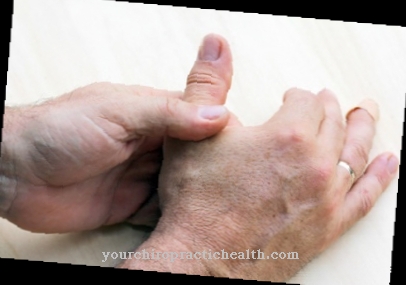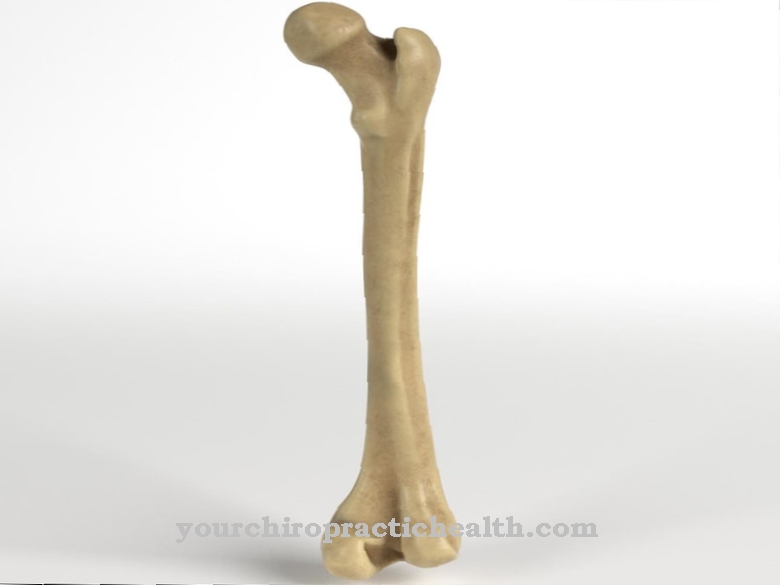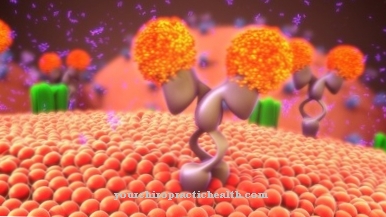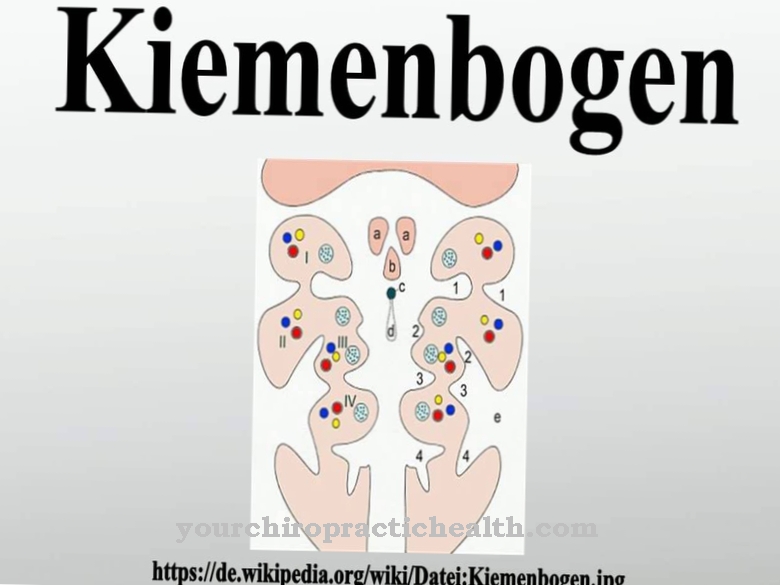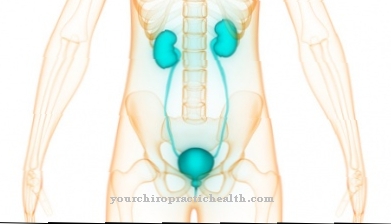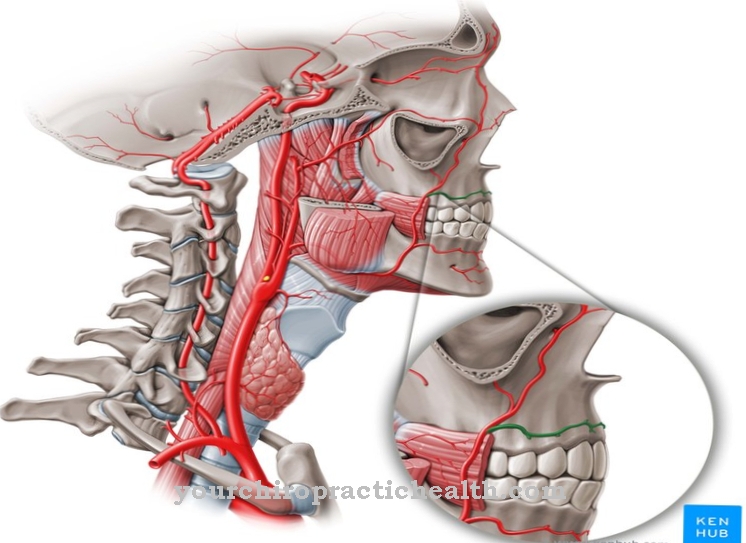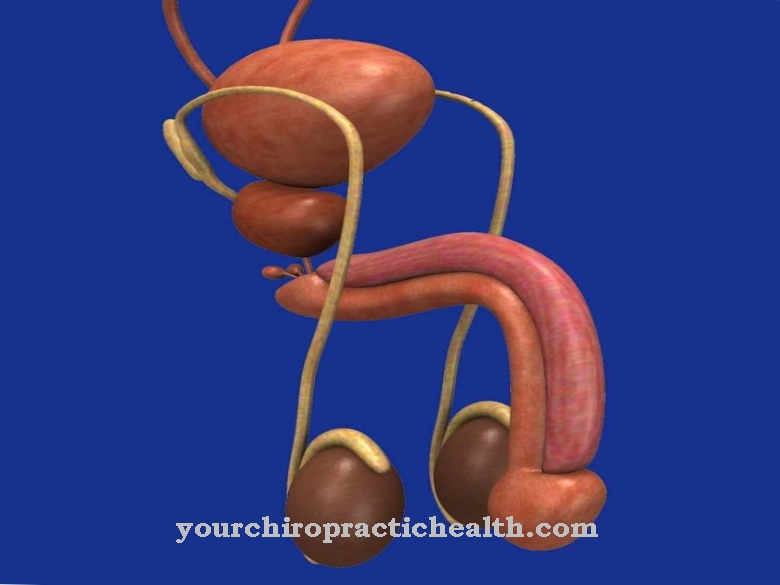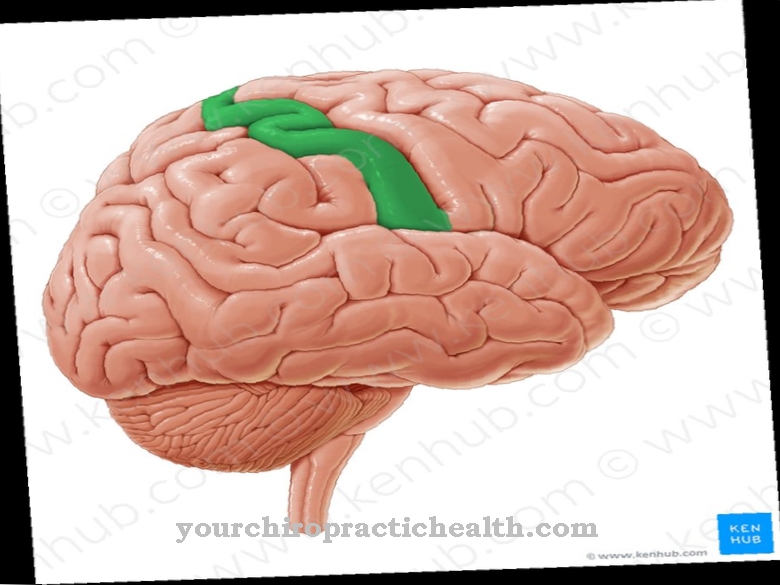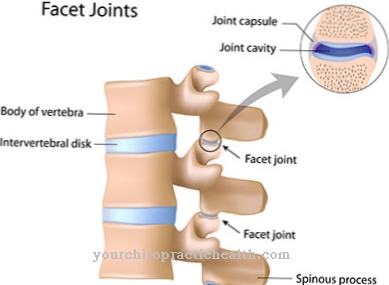Of the Morning stiffness Osteoarthritis patients are often affected, but it is also an accompanying symptom in other diseases. The symptoms are expressed by stiff joints, i.e. restricted mobility and start-up pain. The latter means that the first movements in the morning are difficult. This is all a sign that something is wrong with the joints.
What is morning stiffness?

© Henrie - stock.adobe.com
Morning stiffness describes a symptom that can occur in many different diseases. Joint diseases, in particular, are associated with pronounced morning stiffness, especially osteoarthritis and rheumatism.What usually begins slowly is ultimately the first noticeable sign of impaired health.
After a longer period of rest, for example in the morning after getting up, the joints of those affected are less mobile than usual. The extent of the symptoms decreases again during the day, but also with increased movement of the joints. Around five million people in Germany suffer from joint wear and tear and therefore also from morning stiffness.
The alarm signals should be taken seriously. If something is not done early enough, a serious worsening of the disease must be expected. Symptoms can range up to immobility. Therefore, you should react to a morning stiffness.
causes
The joints are primarily stressed by nightly inflammatory processes, which leads to morning stiffness and restricted mobility. Normally, the nocturnal rest phase is used for regeneration. The tissue is renewed and the cell debris is removed. Therefore, the cortisol level drops at night, so that the immune system is inhibited.
However, this can become a problem in arthritically altered joints. The body's defenses are very busy removing the cartilage debris that results from wear and tear in the joints. In the event of an excessive immune response, however, healthy cell structures are also attacked, causing inflammation and worsening the disease.
Cartilage can function well for life, but only if it is not overused. This includes, for example, incorrect exercise, but too much rest can also be a cause. Overuse can be compensated for for a certain period of time, but osteoarthritis is inevitable after longer periods.
However, when morning stiffness occurs, it can have many different causes. These can only be determined through a detailed examination and tests. Hence, in the perception of symptoms, it is important to see a doctor.
Diseases with this symptom
- arthrosis
- Spondylarthrosis
- rheumatism
- ankylosing spondylitis
- Temporal arteritis
- Tendinitis
Diagnosis & course
Careful diagnosis is very important in the case of morning stiffness, as this enables appropriate treatment to be initiated. The anamnesis is always done by the doctor at the beginning. Here he asks the patient about their history. Then it comes to viewing and touching.
In addition, the doctor has special function and pain tests that enable him to check the stability of the ligaments and muscles as well as the mobility of the joints. If there is a suspicion that osteoarthritis is present, the doctor will use diagnostic equipment, for example ultrasound, X-ray or MRI examinations.
This gives a good indication of the condition of the joint and the bones. In the case of redness and severe swelling, a joint puncture is often performed to analyze the synovial fluid in the laboratory. The blood test is another test method.
This allows the number of immune cells in the synovial fluid, the viscosity of the synovial fluid and the presence of rheumatoid factors to be examined. This will help determine if it is osteoarthritis, rheumatoid arthritis, or gout that is causing the morning stiffness.
Complications
Scintigraphy and magnetic resonance imaging are available for meniscus damage or changes in bone metabolism. It is always important to consult a doctor at an early stage, who will determine the cause and initiate appropriate therapy. Otherwise the disease can lead to progressive joint destruction.
Morning stiffness is mainly caused by a disease of the joints. These can have various complications. One possibility of morning stiffness is gout. The uric acid crystals that are deposited in the joints can become inflamed and cause severe pain and swelling of the joint. There is also a fever.
In addition, uric acid can also be deposited in the bones and lead to corresponding damage there. In some cases, deposits can also form in the kidney, which can lead to kidney failure (renal insufficiency). Wear and tear of the articular cartilage (arthrosis) also leads to permanent complications. Similar to gout, inflammatory reactions and joint effusions occur.
In addition, the structure of the joint changes. Since osteoarthritis cannot be cured, there is constant abrasion of cartilage down to the bone, so that in the later stages bone can rub against bone. Not only does this cause severe pain, it can also cause the bone to collapse and debris to spread.
An inflammatory disease of the joint (arthritis) can also trigger stiffness. An example of this is rheumatoid arthritis. This autoimmune disease not only affects the joints and destroys them, but can also affect other organs such as the heart or blood vessels and thus lead to inflammatory degenerative reactions.
When should you go to the doctor?
Morning stiffness can have a variety of causes and is mostly temporary. A doctor should be consulted if the symptoms appear for several days in a row or if they lead to significant restrictions in private and professional life. If simple movements can no longer be performed and the movement is greatly reduced, the affected joints and muscles must be treated by a doctor.
Sometimes the symptoms are also caused by incorrect posture or overloading of the back. Those affected can then often reduce their morning stiffness through light stretching exercises and rest. However, if the symptoms persist or even increase, medical advice should be sought. If you suspect an arthritic disease or stress-related morning stiffness, a visit to your doctor is recommended. The same applies if the stiffening gradually spreads to other parts of the body and causes accompanying symptoms such as joint pain or migraines.
Patients who already suffer from a joint or muscle disease should discuss morning stiffness with their doctor. A doctor's visit is particularly urgent if the symptoms appear suddenly and increase rapidly. Then there may be a herniated disc that needs immediate emergency medical treatment to avoid a severe course.
Doctors & therapists in your area
Treatment & Therapy
In the case of morning stiffness, the treatment is always based on the identified cause. If osteoarthritis is present, it is usually not enough to simply discuss the therapy plan prescribed by the doctor. Often life habits also have to be changed. This includes, for example, types of exercise that are gentle on the joints or a different diet.
Morning stiffness can be combated with physiotherapeutic measures, but these should be done under professional guidance. Otherwise the symptoms and symptoms could worsen. In addition, drug therapies are often used to minimize inflammation within the joint and thus stop or at least slow down a further or worse course of the disease.
Anti-inflammatory drugs are the so-called NSAIDS, such as ibuprofen and diclofenac. These represent the basic medication for diseases such as rheumatism and osteoarthritis, which are very often the reason for morning stiffness. If there is an autoimmune disease, especially rheumatoid arthritis, drugs that suppress the immune system are often helpful. Cortisol is a very important part of the treatment for rheumatism.
Outlook & forecast
Due to the morning stiffness, the patients mainly experience restrictions in movement and pain. These occur more frequently in the morning after getting up, but can also burden the entire everyday life and greatly reduce the quality of life.
It is not uncommon for many patients to experience psychological complaints and depression due to the pain and limitations, so that psychological treatment is also necessary. It is not uncommon for the joints to swell and redden due to the morning stiffness.
A diagnosis can be made relatively well with the help of various imaging methods, so that treatment can start early. In most cases, people have arthritis or osteoarthritis. If morning stiffness is not treated, the joints can become inflamed.
It can also be gout, which must definitely be treated by the doctor. This leads to increased fever and very severe pain. In severe cases, deposits can also damage the kidneys, leading to renal failure. If the bones rub against each other, they can be damaged. For this reason, morning stiffness treatment is always required to prevent consequential damage.
prevention
Since overstrain, but also a lack of exercise, can be the reason for morning stiffness, changes should be introduced in this regard. Incorrect stress at work and a lack of mobility, even in overweight people, favor osteoarthritis and thus trigger morning stiffness. Good prevention is therefore sufficient exercise without being overwhelmed.
It is also important to have a healthy and balanced diet, in which processed foods should be avoided as much as possible in order to avoid metabolic diseases. In the case of a genetic predisposition, regular laboratory controls are recommended in addition to the measures mentioned. In addition, it is advisable not to expose the body too much to the cold, because this worsens morning stiffness.
You can do that yourself
Regular morning stiffness indicates osteoarthritis or a comparable condition and should be discussed with the doctor. In addition, those affected can alleviate the symptoms by taking various measures. It often helps to change your diet and make movements that are gentle on the joints. Morning stiffness may also be due to a lack of exercise, which can be compensated for through exercise and gymnastics.
In the case of a genetic predisposition, it is advisable to protect the body from heat or cold, as these can worsen morning stiffness. If the morning stiffness is caused by a chronic illness, this must first be treated. In the morning, gymnastics and yoga help loosen up the joints. Before going to bed, light relaxation exercises, but also heat wraps and cold applications can alleviate the symptoms.
Morning stiffness, which is associated with pain, can be treated with various home remedies such as Swedish herbs or Jonen ointment, as well as essential oils made from pine, camphor, mint, cypress or eucalyptus. Medicinal plants that are said to have a soothing effect include angelica, arnica, comfrey and juniper. Pain patients and allergy sufferers should clarify appropriate applications with their family doctor beforehand.

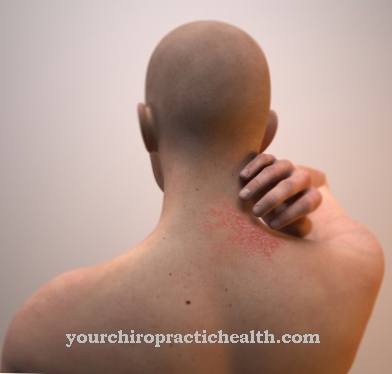

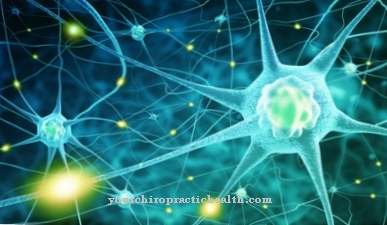
.jpg)



.jpg)

